American Enlightenment
Introduction
The American Enlightenment was an intellectual movement which started in the 17th century and resulted in the formation of the USA. This movement also influenced the American colonies, and they went through a lot of change.
During the Enlightenment period, religious tolerance was promoted. Along with this Literature, Music and Arts were reinstated as vital subjects at the colleges. Many new-model colleges were also established in the Enlightenment era, e.g. King’s College New York and College of Philadelphia.
Reforms were made in Yale College, College of New Jersey, Harvard University and College of William & Mary, etc.
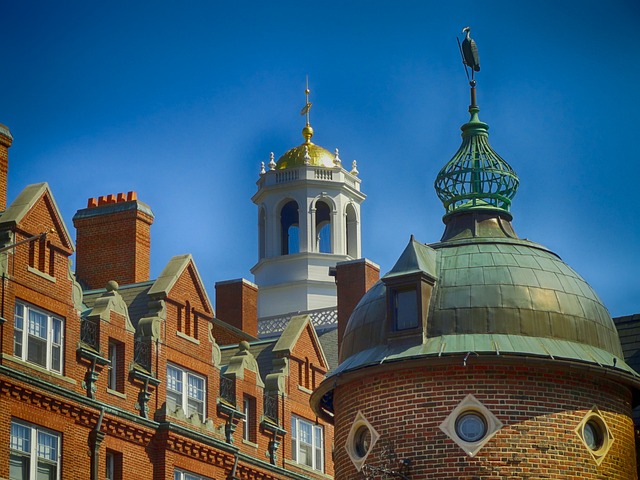
Yale College
Date of the American Enlightenment
Various speculations exist regarding the time-line of the American Enlightenment. However, the October 15, 1714, appears to be the most precise one regarding the start of American Enlightenment.
On this day, Jeremiah Dummer, who was a colonial agent, donated a large number of Enlightenment books to a small college library. Samuel Johnson, who was a post-graduate at that time, studied them and discovered that they thoroughly contracted his Puritan education.
Johnson later joined Yale as a tutor and introduced a new curriculum which was based around Dummer’s books. He introduced a “New Learning” concept in which he focused on the works/idea of Francis Bacon, John Locke, Isaac Newton, Boyle, Copernicus, Shakespeare, Milton, and Addison, etc.
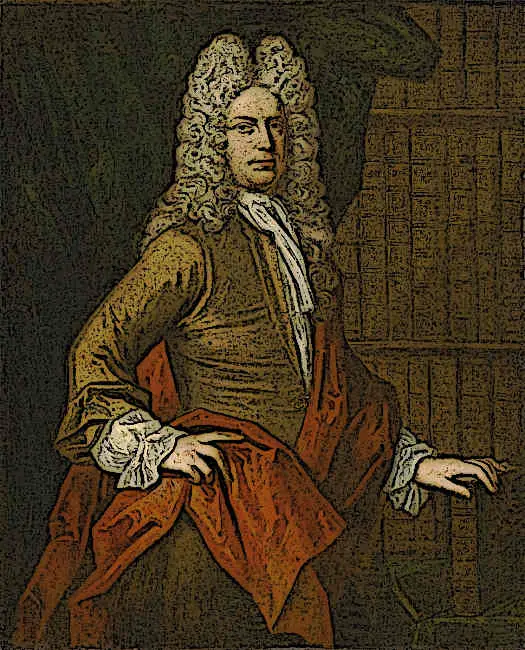
Jeremiah Dummer, who was a colonial agent
European and other Influences
The Europeans had a massive impact on the American Enlightenment. The American colonies had acquired a lot of books from Great Britain through their trade relationship. They were also influenced by James Harrington, Algernon Sidney, the Viscount Bolingbroke, John Trenchard and Thomas Gordon, etc.
The Scottish Enlightenment also affected the Americans. David Hume’s Essays and other works were quite popular in the colonies. They heavily influenced James Madison and the Constitution. Francis Hutcheson also profoundly influenced the upper-class American colonists who tried to imitate the European’s manners and knowledge.
Montesquieu’s Spirit of the Laws and Emer de Vattel’s Law of Nations also had an impact on the American Enlightenment as well.
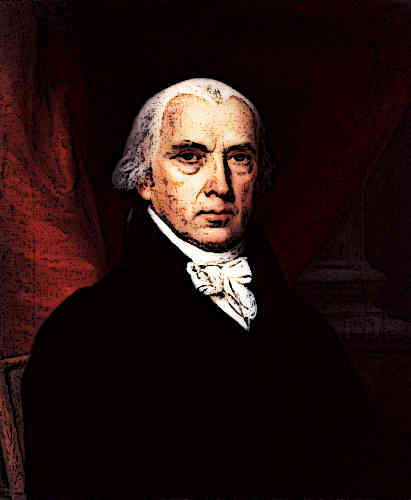
Intellectual changes
Between 1714 and 1818, the American colonies underwent great changes. Religious and educational reforms took place. Advancement in science, technology, political and moral philosophy occurred as well. The colonies shifted their focus to the pursuit of happiness concept.
Deism
During the Enlightenment, Deism emerged as one of the key ideas. The Enlightenment thinkers regarded prejudice, preconceived notions and traditions as hindrances to acquiring true knowledge regarding the universal law.
This led to the formation of deism. Deist regarded God as a rational deity. They believed that God created the universal laws and gave the human beings the power of reasoning so that they would interpret God’s will through their sound judgment. The founding fathers of America such as John Adams, Benjamin Franklin and Thomas Jefferson were greatly influenced by Deism.
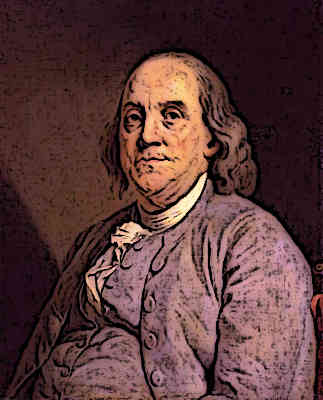
Benjamin Franklin Founding Father and President of United States of America
Liberalism
Liberalism was another important idea that emerged out during the Enlightenment era. According to this idea, every individual had natural rights and the ruler’s authority was not absolute; it depended on the consent of those being ruled. Liberalism was anti-authoritarian. It gave preference to the middle-class people over the high-class aristocrats.
A legal system which protected everyone’s private property rights was available as well. The early Liberalism promoted freedom of expression and movement. It was later developed and became associated with grassroots democracy.
John Locke first introduced the idea of Liberalism; however, traces of it can also be found in Thomas Jefferson’s Declaration of Independence. The first ten amendments of the Bill of Rights also defend the human rights and are based on liberal ideas.
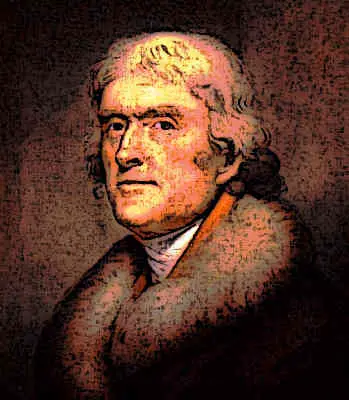
Thomas Jefferson Founding Father 3rd President of America Portrait Painting
Republicanism
During American Enlightenment, the colonies promoted the idea of Republicanism. They had become tired of Britain’s corrupt political system and wanted to elect their own leaders. This resulted in many people joining the militias and eventually led to the formation of the American Continental Army.
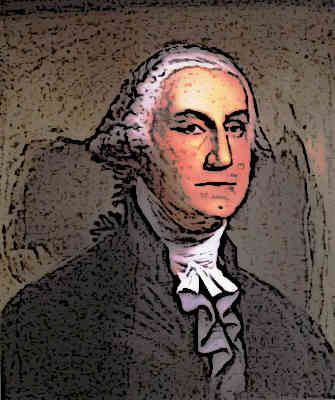
George Washington Founding Father and America President
When George Washington was appointed the highest officer of the land, he rejected the royal title and instead chose to be called the President. In the contemporary world, a lot of debate is going on regarding what role Liberalism and Republicanism played during the American Revolution.
So, far, the evidence suggests that the Republicanism views prevailed in the American Enlightenment era.
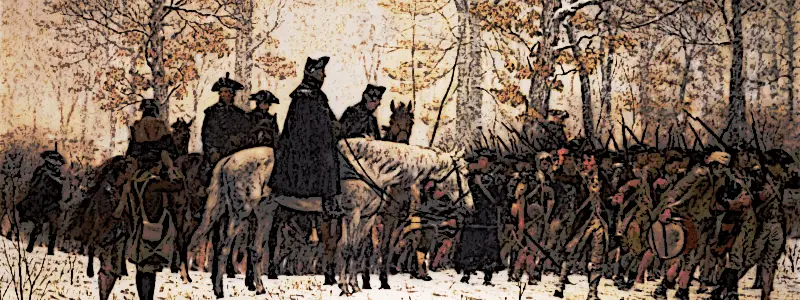
Tolerance
The Enlightened thinkers wanted to create a religious dogma-free place where people freely interacted with others regardless of their race/faith. The Americans colonists inherited the European Englighters will and carried it through.
Benjamin Franklin, Thomas Jefferson, James Madison and George Washington promoted religious tolerance. They wanted to create a country where people of different religion could live freely.
The shift from established religion to religious tolerance was the biggest changes of this era. On October 5, 1818, the new Connecticut Constitution was passed, which broke the 180 years old standing order and the Connecticut charter of 1662.
The new constitution promised religious freedom and eliminated the Congregational church.
Famous people of the American Enlightenment era
- Jonathan Edwards.
- Thomas Clap.
- Ezra Stiles.
- Samuel Johnson.
- William Smith.
- John Adams.
- James Madison.
- Thomas Paine.
- George Mason.
- James Wilson.
- Ethan Allen.
- Alexander Hamilton.
- Benjamin Franklin.
- Thomas Jefferson.
- Benjamin Franklin.
- William Smith.
- Jared Eliot.
- David Rittenhouse.
- Benjamin Rush.
- Charles Willson Peale.
- Cadwallader Colden.
- Jane Colden.
- Count Rumford.
Scientific Progress in the Enlightenment Era
The Enlightenment Era led to the discovery of many new inventions. The Deists were especially focused on satisfying their curiosity and making full use of their intellectual capabilities.
Benjamin Franklin was at the forefront of this era. He founded the American Philosophical Society and became its first president. His various inventions and his work on electricity made him famous.
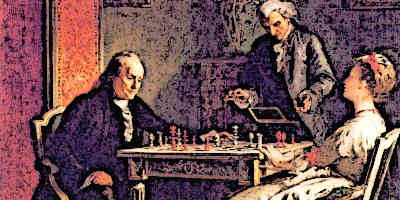
From a very young age, Franklin had to deal with eye problems as he became older; the problem became worse. He became frustrated, and this led to the discovery of the Bifocals. Another one of his famous inventions was the lightning rod.
He used a kite for this purpose and demonstrated that lighting was made from electricity. This was the start of his electricity-related work as well. Along with this he also created the Franklin stove, Odometer and Glass Harmonica.
- Birth of the USA
- 1st Amendment
- 2nd Amendment
- American Enlightenment
- American National Anthem
- Articles of Confederation 1777
- Betsy Ross
- Bill of Rights
- Birth of USA Timeline
- Christopher Columbus
- Declaration of Independence
- Federalism
- Is the United States a Democracy?
- Isolationism vs. Interventionism
- Liberty Bell
- Pledge of Allegiance
- The Torch of Liberty
- The U.S. Constitution
- Treaty of Paris
- War of Independence
- Washington D.C
- What Is The American Dream?
